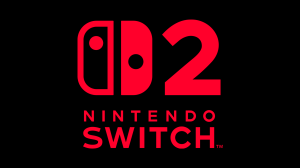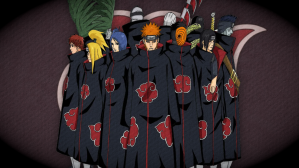Like it or not, death is a fundamental part of Dungeons & Dragons. Every session of the popular roleplaying game is set one of countless fantasy worlds where players assume the mantle of adventurers seeking glory, treasure, and justice as they explore lost ruins and battle fearsome monsters. However, Dungeons & Dragons isn’t a video game where players have the luxury of restarting a level when they make a mistake. It’s a roleplaying game, where a bad dice roll or a poor decision can lead to your character dead….perhaps permanently.
Videos by ComicBook.com
However, players approach death in Dungeons & Dragons in different ways. Some like the uncertainty and danger of a world where their characters can die for making even a seemingly poor decision. Others grow attached to their characters and don’t want a random dice roll to undermine months of character development and storytelling. After all, Dungeons & Dragons is both a game and a collaborative storytelling experience and most people wouldn’t look too kindly at a main character dying in a novel or a book because they stepped on the wrong tile in a dungeon.
There’s no real “right way” to handling death in Dungeons & Dragons. Some games prefer permadeaths and harsh consequences even if they come back to life, while other games are more flexible when it comes to the veil between life and death. Last year, I had the opportunity to speak to senior D&D producer Chris Perkins about how he handled death in Dice, Camera, Action – the flagship show for D&D’s streaming channel. Dice, Camera, Action has seen its characters die multiple times, but none of the deaths have “stuck.” “I really leave it up to the players,” Perkins said. “If a character dies, and a player wants to switch out their character, I’m all for it. That’s a case where more power lays with the player instead of the DM. The DM is there to facilitate letting the story continue with whichever character the player wants to play.”
The key to handling character deaths, as with all things in Dungeons & Dragons, is good communication between the DM and the players. Before a campaign really gets underway, both the DM and the players should talk about how they want to approach death at the table. Are they playing a game where characters die permanently if a cleric doesn’t have “Revivify” or “Resurrection” prepared? Or are there ample opportunities for resurrection, whether it’s because a friendly deity, a traveling cleric, or some other mysterious circumstance? Or are you playing in a game where a Resurrection spell isn’t guaranteed to bring back a player to life, such as in Critical Role, where a Resurrection is only successful if the party passes a “Resurrection Skill Challenge?”
Even if the DM is insistent about managing the game a certain way and being either flexible or inflexible when it comes to player deaths, discussing it beforehand gives players agency, as they can always choose not to participate if they don’t like how death is managed.
No matter how a table approaches death in Dungeons & Dragons, it can still be a powerful storytelling force. Jared Knabenbauer, one of the players of Dice, Camera, Action, talked about how even temporary deaths can have consequences in their show. “There have been interesting deaths and dumb deaths and weird deaths in the show, but it seems like everything eventually comes back and has a purpose,” he said. “Even though the characters have died multiple times, there’s never been an inconsequential death.”
If a player doesn’t want to part with their character, death can still be turned into a challenge. The party might need to venture into the afterlife to retrieve a player’s soul, or the player might need to complete a certain task on behalf of a god of death to make their resurrection stick. Maybe the player was secretly returned to life by a villain, so the villain can spy on the party or hold some sort of leverage over them during a critical moment. There are a lot of great ways for death to advance a Dungeons & Dragons story, even if it doesn’t involve putting a character in the ground and holding a funeral and then the rest of the party getting revenge on whoever or whatever caused that character’s deaths.
No matter how your Dungeons & Dragons game approaches death, it’s important to communicate beforehand and to remember that death can be a powerful storytelling device. After all, Dungeons & Dragons is all about telling stories and stories don’t need to have happy endings.
How does your D&D game handle death? Let us know in the comment section or find me on Twitter at @CHofferCbus to talk all things D&D!
—–
Have you subscribed to ComicBook Nation, the official Podcast of ComicBook.com yet? Check it out by clicking here or listen below.
In this latest episode, we talk about Dragon Ball Super maybe returning, we’re breaking down Kofi’s trip to the set of Godzilla: King of the Monsters and more! Make sure to subscribe now and never miss an episode!









